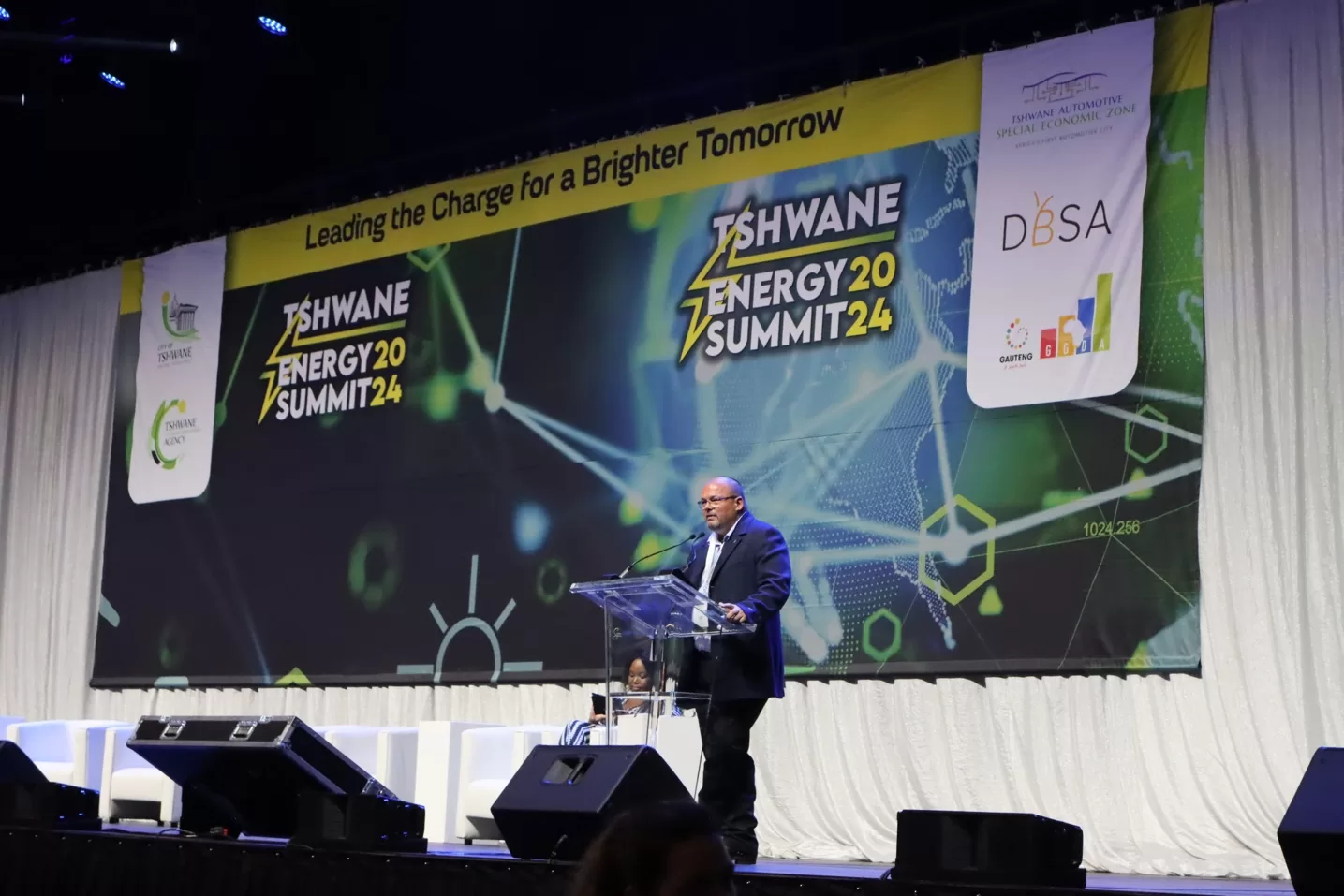Tshwane aims to produce 1000 MW of energy from alternative sources over the next three years. This was revealed during the recently held inaugural Tshwane Energy Summit, held on 19 – 20 June in Pretoria. The summit focused on innovation, sustainability, and public-private partnerships to tackle critical energy sector issues. The event aimed to align relationships between the private sector and the city, outlining Tshwane’s goals for energy security and economic growth.
Tshwane’s commitment to achieving net-zero carbon buildings by 2050 and increasing renewable energy deployment was a key theme. Councillor Geordin Hill-Lewis, Executive Mayor of Cape Town, spoke about reimagining the energy future and improving past practices while Vuyo Zitumane, COO of the City of Tshwane, saw the summit as an opportunity to introduce additional generation capacity and address energy challenges.
Tshwane aims to produce 1000 MW of energy from alternative sources over the next three years, with significant contributions from the Rooiwal and Pretoria West power stations. Progress includes establishing an energy task team, leasing power stations, and collaborating with the Council of Scientific and Industrial Research to model demand scenarios. Dr. Stander confirmed the feasibility of recommissioning the Rooiwal power station using coal and converting Pretoria West to a gas-to-power or waste-to-energy plant.
Tshwane climate action
Sello Mphaga, chair of the energy task team, discussed Tshwane’s climate action plan and the importance of sustainable urban development. The Bronkhorstspruit Biogas Project, which converts organic waste to renewable power, was highlighted as a cutting-edge solution for reducing pollution and driving economic growth.
Kewiah Jooste of Bio2Watt Energy Holdings discussed the benefits of biogas production from organic waste, addressing landfill issues and generating renewable energy. The summit featured an international case study on The Netherlands, exploring hydrogen innovations like iron fuel, which offers a renewable, zero-emission energy solution.
Theo Cilliers of Renewable Energy Storage and Hydrogen Solutions explained how iron powder can be used as a fossil fuel alternative, with potential applications for Tshwane’s power stations. Dr. Bheka Zulu, CEO of the Tshwane Automotive Special Economic Zone, discussed the shift towards new energy vehicles (NEVs) and the need for South Africa to adapt its automotive industry to meet global demands for cleaner energy vehicles.
The summit explored various topics, including aligning national and local energy action plans, off-grid opportunities, and public-private collaborations for sustainable urban development. Councillor Themba Fosi emphasised Tshwane’s commitment to energy security and investment in the energy sector.
Dr. Lardo Stander, CEO of the Tshwane Economic Development Agency, emphasised the summit’s role in making Tshwane the economic hub of Africa through strategic stakeholder engagement. Councillor Cilliers Brink, Executive Mayor of Tshwane, highlighted the importance of diversified electricity sources and infrastructure development for achieving energy independence and decarbonisation.
The summit, organised by the Tshwane Economic Development Agency and the City of Tshwane, gathered 472 delegates and 25 exhibitors, including key decision-makers from various sectors. Discussions centred on addressing South Africa’s energy crisis and exploring technologies for economic growth and sustainability.
Also read Balwin has officially opened a newly constructed double-lane Hazeldean road to city of Tshwane

